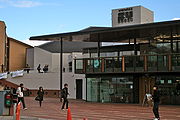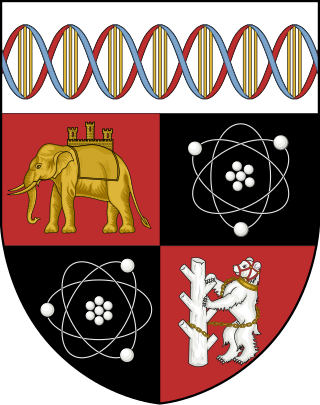
The University of Warwick is a public research university on the outskirts of Coventry between the West Midlands and Warwickshire, England. The university was founded in 1965 as part of a government initiative to expand higher education. The Warwick Business School was established in 1967, the Warwick Law School in 1968, Warwick Manufacturing Group (WMG) in 1980, and Warwick Medical School in 2000. Warwick incorporated Coventry College of Education in 1979 and Horticulture Research International in 2004.

Belton House is a Grade I listed country house in the parish of Belton near Grantham in Lincolnshire, England, built between 1685 and 1687 by Sir John Brownlow, 3rd Baronet. It is surrounded by formal gardens and a series of avenues leading to follies within a larger wooded park. Belton has been described as a compilation of all that is finest of Carolean architecture, said to be the only truly vernacular style of architecture that England had produced since the Tudor period. It is considered to be a complete example of a typical English country house; the claim has even been made that Belton's principal façade was the inspiration for the modern British motorway signs which give directions to stately homes.

Ian Nicholas Stewart is a British mathematician and a popular-science and science-fiction writer. He is Emeritus Professor of Mathematics at the University of Warwick, England.
The year 1969 in architecture involved some significant architectural events and new buildings.
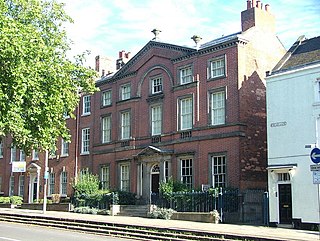
Pickford's House Museum of Georgian Life and Costume is in Derby, England. It is named after architect Joseph Pickford, who built it as his family home in 1770. It was opened as a museum in 1988. The building is Grade I listed.

The Institute of Mathematics and its Applications (IMA) is the UK's chartered professional body for mathematicians and one of the UK's learned societies for mathematics.
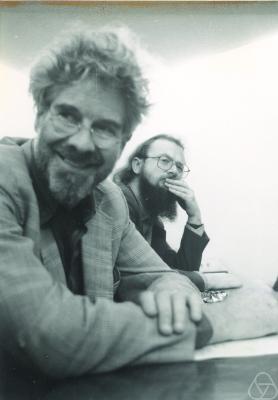
Sir Erik Christopher Zeeman FRS, was a British mathematician, known for his work in geometric topology and singularity theory.

Jenny Harrison is a professor of mathematics at the University of California, Berkeley.

Gibbet Hill is the location of, and name for, the University of Warwick's southern campus, in the south of Coventry, England.
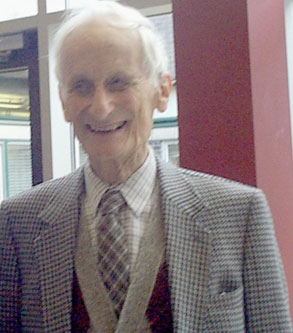
Shaun Wylie was a British mathematician and World War II codebreaker.
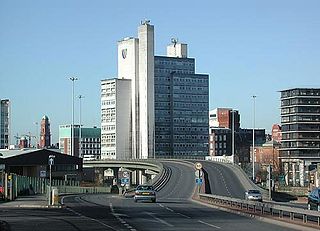
The Maths and Social Sciences Building is a high-rise tower in Manchester, England. It was part of the University of Manchester Institute of Science and Technology (UMIST) until that university merged with the Victoria University of Manchester, to form the University of Manchester, in 2004. It was vacated by the university in 2010 but is currently in use by the School of Materials while waiting for a new building to be constructed.

The Alan Turing Building, named after the mathematician and founder of computer science Alan Turing, is a building at the University of Manchester, in Manchester, England. It houses the School of Mathematics, the Photon Science Institute and the Jodrell Bank Centre for Astrophysics (JBCA). The building is located in the Chorlton-on-Medlock district of Manchester, on Upper Brook Street, and is adjacent to University Place and the Henry Royce Institute.

Eynsham Hall is a Grade II listed mansion near North Leigh in Oxfordshire, England. The original house dating from the 1770s was largely rebuilt in the early 20th century by Ernest George. After use as a country house and venue for hunting parties it became a maternity hospital rest and relaxation centre in World War II and then a police training centre. It is now used as a hotel and country club.

David John Angelo Trotman is a mathematician, with dual British and French nationality. He is a grandson of the poet and author Oliver W F Lodge and a great-grandson of the physicist Sir Oliver Lodge. He works in an area of singularity theory known as the theory of stratifications, and particularly on properties of stratifications satisfying the Whitney conditions and other similar conditions important for understanding topological stability.
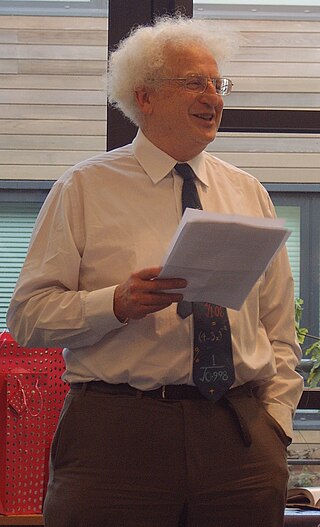
David Bernard Alper Epstein FRS is a mathematician known for his work in hyperbolic geometry, 3-manifolds, and group theory, amongst other fields. He co-founded the University of Warwick mathematics department with Christopher Zeeman and is founding editor of the journal Experimental Mathematics.
Minhyong Kim is a South Korean mathematician who specialises in arithmetic geometry and anabelian geometry.
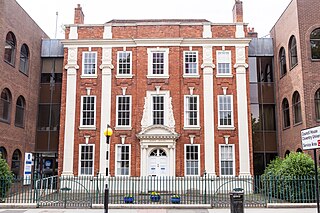
There are 24 Grade II* listed buildings in the City of Coventry. In the United Kingdom, a listed building is a building or structure of special historical or architectural importance. These buildings are legally protected from demolition, as well as from any extensions or alterations that would adversely affect the building's character or destroy historic features. Listed buildings are divided into three categories—Grade I buildings are buildings of "exceptional" interest, Grade II buildings are buildings of special interest, and Grade II* buildings are Grade II buildings that are of particular interest. Coventry is an ancient city and a metropolitan borough in the West Midlands of England. The city's history dates back to at least the 11th century (CE), and it was a thriving centre of commerce in mediaeval times.

James Eells was an American mathematician, who specialized in mathematical analysis.

Integral House is a private residence located at 194 Roxborough Drive in the Rosedale neighbourhood of Toronto, Ontario, Canada. The project was commissioned by mathematician James Stewart as a residence incorporating a performance space, and was designed by Brigitte Shim and Howard Sutcliffe of the Toronto architectural firm Shim-Sutcliffe Architects. The name of the house is derived from the mathematical integral symbol, commonly used in calculus; Stewart's wealth derived from his authorship of widely used calculus textbooks. It has won several architectural awards, including a 2012 Governor-General's Medal in Architecture. Glenn D. Lowry, director of the Museum of Modern Art, said of Integral House, "I think it's one of the most important private houses built in North America in a long time."

William Gough Howell DFC ARA was a British architect, the leading force in the firm of Howell, Killick, Partridge and Amis, and chair of the architecture department at Cambridge University from 1973 until his death the following year in a road accident.





















